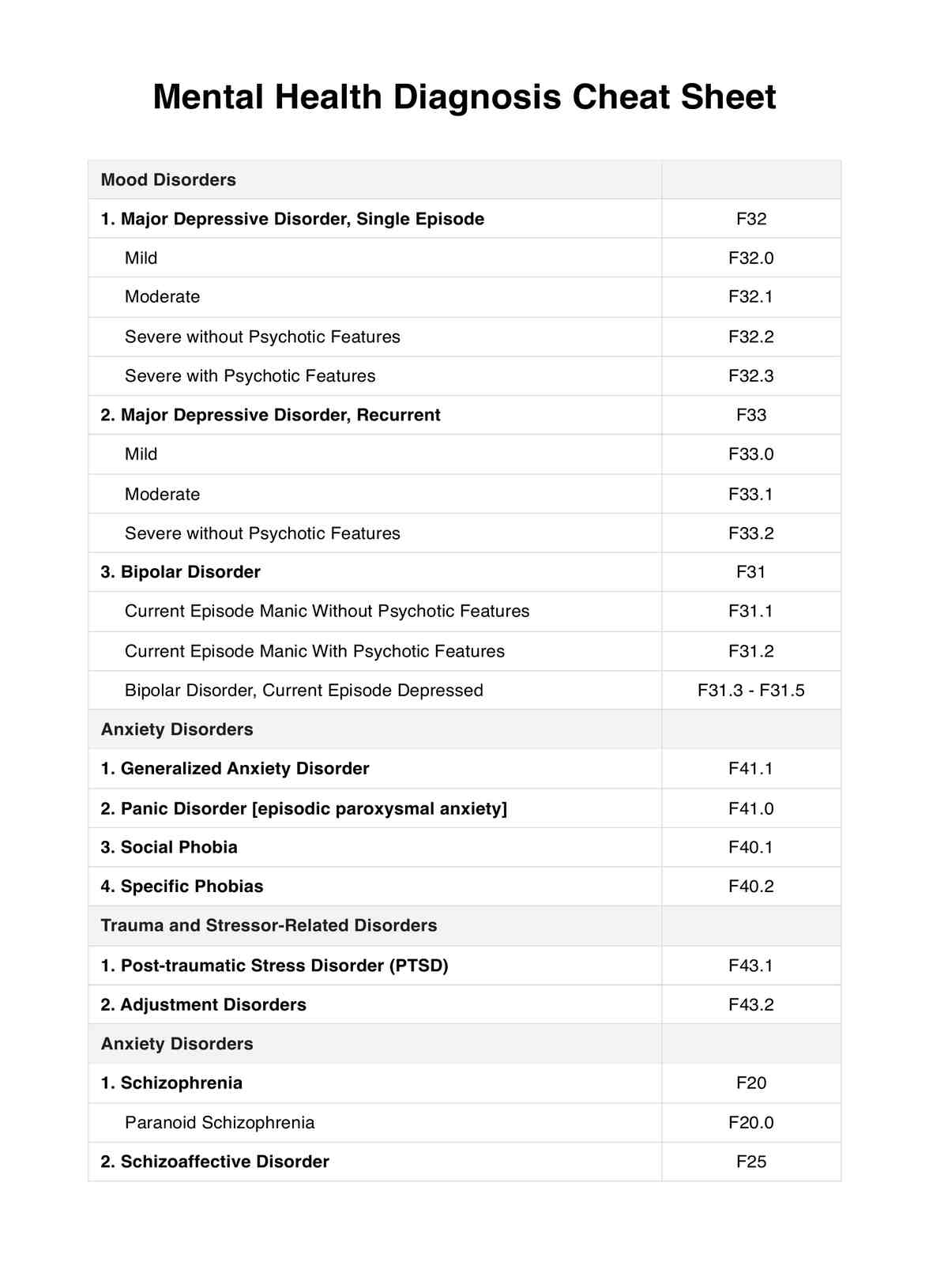Yes! There have been significant updates to ICD-10 codes for mental health in 2023, including adding new billable healthcare codes for areas such as social determinants of health, dementia, maternal care, and pregnancy. With the recent implementation of these updates on April 1, 2024, in the United States, the modifications highlight the continued reliance on ICD-10 in many countries despite the availability of ICD-11.

Mental Health Diagnosis Cheat Sheet
Discover our Mental Health Diagnosis Cheat Sheet for accurate ICD-10 coding, enhancing care and billing in mental health practices.
Mental Health Diagnosis Cheat Sheet Template
Commonly asked questions
Understanding the structure of ICD-10 codes involves categorizing them into chapters covering different diseases and health conditions. For mental health specifically, you can find relevant codes under Chapter 5, which deals with mental, behavioral, and neurodevelopmental disorders. Each code is structured to provide a high level of specificity about the condition, its severity, and other important clinical details.
When using ICD-10 codes, it's important to ensure code specificity to capture the full acuity of the patient and the care provided, especially as the healthcare system shifts towards value-based care. Always rely on the latest updates and guidelines to ensure accurate documentation and coding. Additionally, leveraging resources and tools that update you on the annual changes can be very helpful.
EHR and practice management software
Get started for free
*No credit card required
Free
$0/usd
Unlimited clients
Telehealth
1GB of storage
Client portal text
Automated billing and online payments











